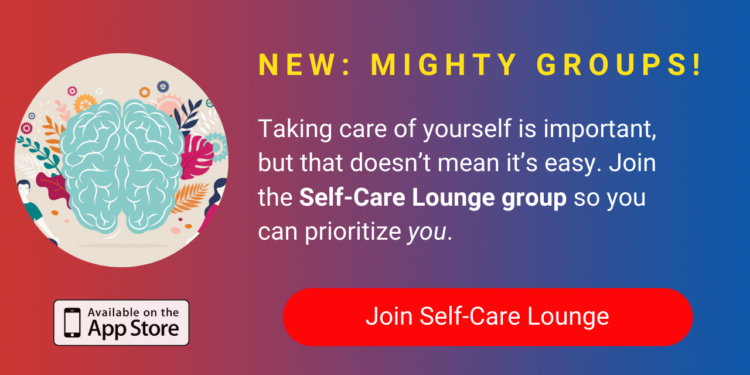The morning after my son’s 7th birthday party, a garish banging jolted me out of a deep sleep. Despite my attempts to ignore the unwelcome intruder, it persisted. Squeezing my eyelids shut, heavy with exhaustion, I willed the noise to cease, but the pounding continued to reverberate throughout my skull. “Bam. Bam. Bam. Bam.” Groaning, I fumbled for my phone, mumbling a string of profanities as I registered the time.
Today, my body was begging for rest; I needed another hour, maybe even two. Slowly becoming aware of my surroundings, I identified the source of the obnoxious noise — a pounding hammer on the wall directly behind my head. I fought against a compelling urge to stay in bed, buried under a mountain of down. But I was wide awake. Stumbling out of bed, I tripped over a pile of throw pillows, cast-offs from the previous night, and turned off my white noise machine. Clearly, soothing rain sounds are no match for a hammer. Worn out, my body and mind screamed for rest and recovery.
A Social Hangover Feels a Lot Like the Real Thing
Though the noise was gone, a similar pounding in my head had taken its place; I felt groggy and spent. I hadn’t consumed a single drop of alcohol, and yet, I had a massive hangover. As both an introvert and an empath, all forms of social interaction, even when enjoyable, are extremely draining for me. It’s the ultimate Catch-22. I love people and relish in human interaction, but too much leaves my tank on empty. If I don’t give myself the space to recharge, my body physically rebels until I do.
A social hangover feels a lot like the real thing, minus the greasy food cravings. I’m grouchy, my brain feels foggy and carrying on a conversation feels impossible. Most of all, my energy is depleted, and I struggle to complete the slightest of tasks. The day after a particularly long, loud or otherwise overstimulating social engagement, I often feel as though I haven’t slept at all, even if I’ve had an abundance of rest.
Since I’m not willing to become a complete recluse and avoid people altogether, a social hangover is sometimes unavoidable. The good news? It’s become much more manageable to navigate because a) I’m honest with myself about my needs, and b) I allow myself the grace to recover. Through years of experience, I’ve discovered effective solutions to remedy the effects of social excess and restore my energy levels.
Take a Time Out to Regroup
Introverts are easily overstimulated by social engagements — the noise, the small talk and the crowd all become extremely overwhelming, even when we’re surrounded by people we know and like. Empaths are extremely susceptible to the energy of others, and when amongst a group of people, an excess of energy comes at us from all directions. This is confusing, draining and all-consuming, even when the energy is light, positive and exuberant. It’s an energy overload akin to an adrenaline rush — once the initial surge of energy wears off, you’re completely depleted. Ultimately, if I’m unable to take a time out to reboot, I crash.
An effective way to lessen the energy drain we experience as empaths is to find a quiet space to recover. When you find yourself in a socially demanding situation and you feel your strength waning, find a place that is calm, quiet and peaceful, anywhere you can be alone to just breathe. Breathing itself is extremely centering. Take slow inhalations in and out, counting each breath. Focus on your own body and thoughts, recognizing which feelings are yours.
Finally, release the burden of every emotion that does not belong to you. Doing this allows empaths to reconnect with ourselves and re-center. At times it’s very difficult, if not impossible, to sneak away on your own, particularly when you’re hosting. The afternoon of my child’s recent birthday celebration was such an occasion. The festivities were loud and engaging. A group of 10 school-aged children were bursting with excitement and energy. It was exactly as a birthday party should be, full of fun, laughter, screaming and sugar. I recognized the escalating need to retreat, but there was no window of opportunity. At the end of the evening, I was weary and in need of some serious alone time to recover.
Allow Yourself a Quiet Place to Recover
Solitude is not an indulgence for the sensitive soul, it an absolute necessity in order for an empath to recover from emotional tap out. For me, extra sleep (often a solid 12 hours) is crucial. This may seem excessive, but the exhaustion felt by empaths when we’ve reached our limit is major. Sleep is a way to wring the sponge, freeing ourselves of the excess emotions we’ve absorbed from others. For me, sleeping alone is my primary means to replenish my energy reserve. If I don’t get enough sleep, it’s much more difficult to replenish my energy stores. When I do get the necessary rest, it feels incredible, like a fresh start.
Beyond extra sleep, spending time alone is a fundamental recovery method. Spend as much as you need in solitude, and do not feel guilty about this crucial element of empathic self-care. As empaths, we often try to help everyone else before we tend to ourselves. Now is the time to do the opposite. Let go of other’s needs and desires and prioritize your own. Create a quiet space to be alone with only your own energy and release any negative energy you’ve unwittingly taken on. Liberating yourself from unwanted energy is a vital step in recovery.
The Healing Power of Water and Nature
Water is an important weapon in the empath’s arsenal against emotional exhaustion. When I’ve taken on too much and I’m feeling diminished, I crave a hot bath. I fill my tub with the hottest water I can stand, dump in pounds and pounds of Epsom-salt and sprinkle in several drops of lavender essential oil. Soaking in this soothing concoction is extremely centering. The water becomes almost buoyant, and I feel like I’m floating— relaxed, centered and safe. Ultimately, this process restores my energy and brings back internal balance. When you try this, allow the water to wash away all traces of residual negative energy. Imagine the water cleansing your aura, leaving only brightness and light remaining.
Drinking water is another simple way we empaths can recover balance within our bodies and minds. Our bodies are made up of a large percentage of water, and allowing ourselves a steady, bountiful supply serves to keep us grounded and functioning at our healthiest capacity.
Nature is also a powerful recovery tool with incredible healing potential. Even when lacking the energy to do anything, simply being in nature is restorative. Find a quiet place outside to let your sense awaken. Soak everything in-every sound, every smell, every sensation. Take off your shoes and feel the grass under your feet to ground yourself with the natural energy of the Earth. Connect with all that surrounds you, slowly allowing yourself to become more resilient and serene. Listen to nature’s song while giving your own thoughts the freedom to flow, but don’t analyze them, just observe. Time in the natural world never fails to leave me feeling revitalized and renewed.
As empaths, we are in possession of a remarkable gift that must be protected and nourished. The key to thriving as an empath is maintaining an internal balance, knowing when to let go of what does not serve us. By listening to our intuition and honoring our needs as they arrive, we diminish the burden to ourselves and are therefore better equipped to serve others — a most beautiful thing.
Getty image by nadia_bormotova


